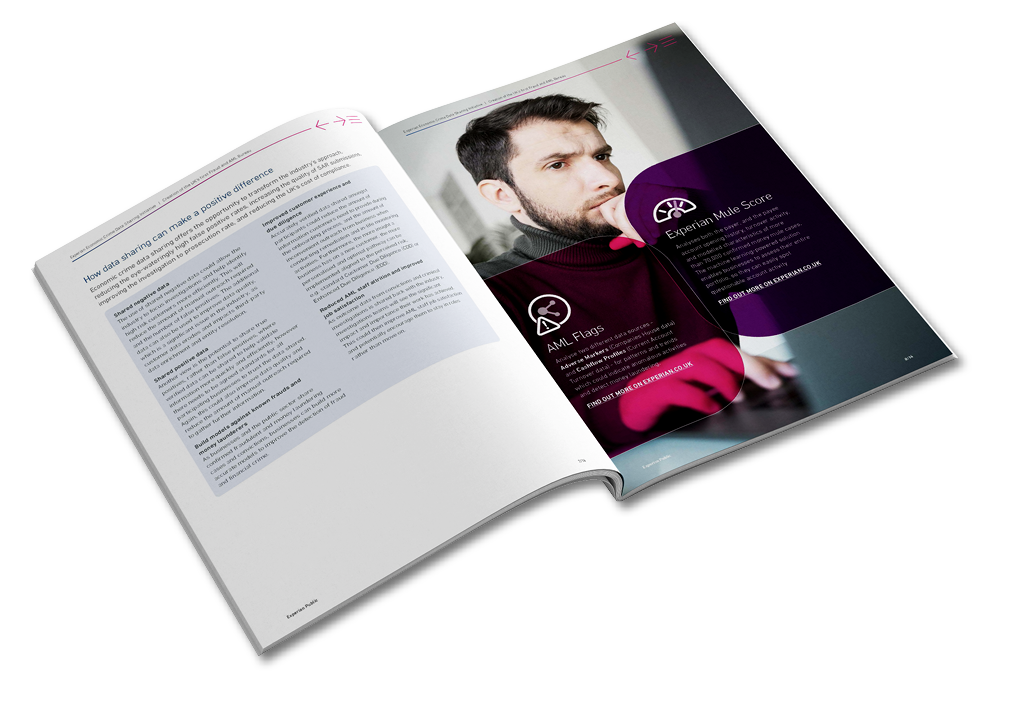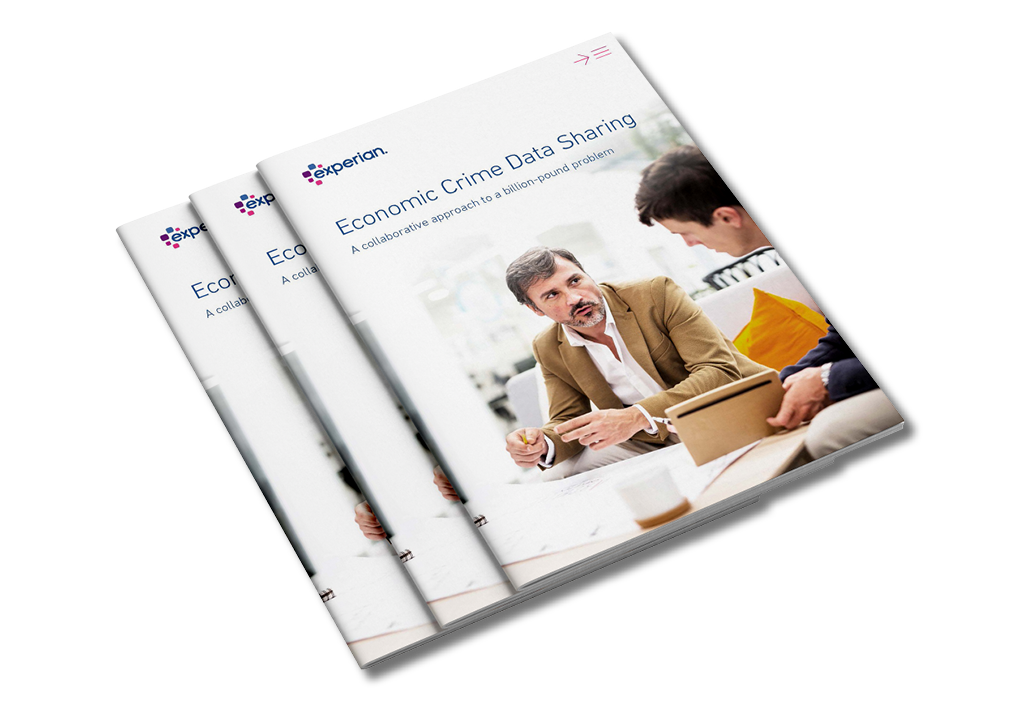Could data sharing in a UK fraud and AML bureau help fight financial crime?
For years, the financial crime prevention community has been exchanging ideas on how best to use data sharing for improved detection. This is a critical issue: economic crime is estimated to cost the UK economy £290 billion[1].
Legislators have recognised the significance of the challenge and damaging impact economic crime has on the UK, recently passing a number of acts that will make it possible for anti-money laundering (AML) regulated businesses and law enforcement agencies to share information to prevent, investigate and detect economic crime.
This short paper will discuss the importance of data sharing to tackle financial crime, some of the challenges we need to overcome, what we can learn from other similar initiatives and how the collaboration between UK private and public sectors is critical to success.
In this report we cover:

Challenges
The challenges of sharing data to tackle financial crime today
Costs
The cost of economic crime to the UK
Economic crime data sharing
What it means for the industry
Credit and fraud data sharing
Providing a blueprint for success?
UK's first fraud and AML bureau
The implementation of the UK’s first fraud and AML bureau
A sneak peek into:
Economic Crime Data Sharing
The cost of economic crime to the UK
Today, the NCA estimates the amount of money laundered in the UK to be between £36bn and £90bn[2], at a total cost of £290bn to the UK economy[1]. Greater public-private data sharing, and the ability to leverage machine learning and predictive analytics capability, will be essential for improving the UK’s current position.
One major contributor to the UK’s economic crime concerns is fraud due to the impact it has on UK GDP. Fraud is a predicate offence to money laundering, as seen in the EU Sixth EU Anti-Money Laundering Directive (6AMLD)[3], and the links between fraud and money laundering have been highlighted in the Government’s Serious and Organised Crime Strategy 2023-2028[4]. Understanding the link between fraud and money laundering is essential for authorities and financial institutions to disrupt and dismantle criminal networks.
- Estimated total cost of fraud to the UK: £219bn[5]
- Fraud in the UK more than doubled in 2023 vs 2022: £2.3bn[6]
- Filings to the National Fraud Database (NFD) in 2023: Over 347k[7]
What cannot be quantified is the damage to society that is linked to, or because of, economic crime. Economic crime can be a traumatic experience that often causes real and irreversible impacts for victims, their families, and communities. Those who rely on government services, such as the elderly, the vulnerable, the sick and the disadvantaged, are often the ones most harmed directly or indirectly by economic crime. These crimes can have a devastating and compounding effect on these victims; amplifying the disadvantage, vulnerability, and inequality they suffer. What is clear is that both the public and private sector need to do more to detect and prevent economic crime and it’s impact on society.
Did you enjoy the read?
Download the full Economic Crime Data Sharing report
Read our paper to find out how sharing economic crime data can transform the detection and prevention of money laundering in the UK.

Download the Economic Crime Data Sharing paper now
[1] Economic Crime: Law Enforcement, Volume 717: debated on Thursday 7 July 2022, Hansard, UK Parliament
[2] Money laundering – worth over £90bn – is security threat to UK, CTMfile
[3] Anti-money laundering and countering the financing of terrorism legislative package, European Commission
[4] No Place to Hide: Serious and Organised Crime Strategy 2023-2028, December 2023, HM Government
[5] Reporting, investigating and prosecuting fraud – Written evidence submitted by OneID Ltd, committees.parliament.uk
[6] Reported fraud doubles in 2023, BDO report finds, BDO
[7] This is Fraudscape, CIFAS









